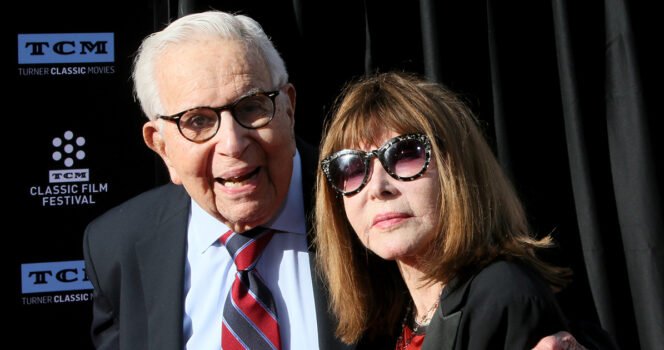Hollywood in the 1950s was a dazzling yet cutthroat realm, where the destinies of actors and actresses were often controlled by influential studios.
Among the many gifted stars of that time, one actress shone brightly with her breathtaking beauty, remarkable talent, and a heartbreaking decline in her career.
Once on the brink of stardom, she found herself unexpectedly blacklisted by one of the major studios, leaving many to speculate about the reasons behind her fall from grace.
In the early 1950s, Lee Grant was celebrated as one of the most stunning women in Hollywood.
With her timeless features, elegant demeanor, and mesmerizing performances on screen, she quickly caught the eye of prominent studios. Producers viewed her as the next sensation, casting her in a string of films that highlighted her allure and range.
Grant made her cinematic debut in the 1951 adaptation of Detective Story, alongside Kirk Douglas, which earned her a nomination for the Academy Award for Best Supporting Actress and the Best Actress Award at the Cannes Film Festival.
Audiences fell in love with her, and critics lauded her work. Everything appeared to be on track—until it all changed.
Mysterious Fall from Grace
Grant’s career took an unexpected turn despite her swift rise to fame when she found herself banned from one of Hollywood’s leading studios. The decision came out of nowhere, leaving many in disbelief. How could someone on the verge of stardom suddenly be excluded from the very industry that had once celebrated her?
Whispers began to circulate. Some speculated that she had had a fallout with influential executives, standing her ground against their demands. Others hinted that her personal life had become a liability for the studio, as Hollywood often tightly managed the public personas of its stars. A few even theorized that she had been blacklisted for reasons beyond her control, possibly due to the cutthroat politics of the entertainment world.
In 1951, CBS reported that Grant delivered a heartfelt eulogy at the memorial for actor J. Edward Bromberg, suggesting that his passing was linked to the pressures of being summoned by the House Un-American Activities Committee (HUAC).

Over the next 12 years, her professional journey would take a different turn.
The Price of Hollywood’s Power Battles
In Hollywood’s Golden Age, studios wielded significant influence over their actors. Those who dared to challenge the industry’s unspoken rules faced severe consequences, including blacklisting, contract termination, and the potential ruin of their careers in an instant. Many gifted performers had their aspirations shattered simply because they didn’t conform to the studios’ expectations.
Grant, who was once on the brink of becoming a superstar, fell victim to the studio system.
Although Grant later took part in projects such as Valley of the Dolls, Columbo, Shampoo, and Mulholland Drive – and ultimately earned an American Academy Award for Best Supporting Actress – she found it difficult to secure roles during the 1950s and early 1960s. The job offers dwindled, and her name slowly disappeared from the spotlight.
A Lasting Legacy
Even though her career ended too soon, her beauty, talent, and the films she graced continue to showcase what might have been. While Hollywood has shifted its focus, genuine film enthusiasts still recognize her as one of the most captivating and overlooked stars of her era.
Her journey reminds us of the unpredictable nature of fame and how even the most brilliant stars can be overshadowed by circumstances beyond their influence.
In today’s world, where actors enjoy greater freedom than ever, her challenges bring to light the darker aspects of classic Hollywood—a realm where, unfortunately, talent alone wasn’t always sufficient for survival.
